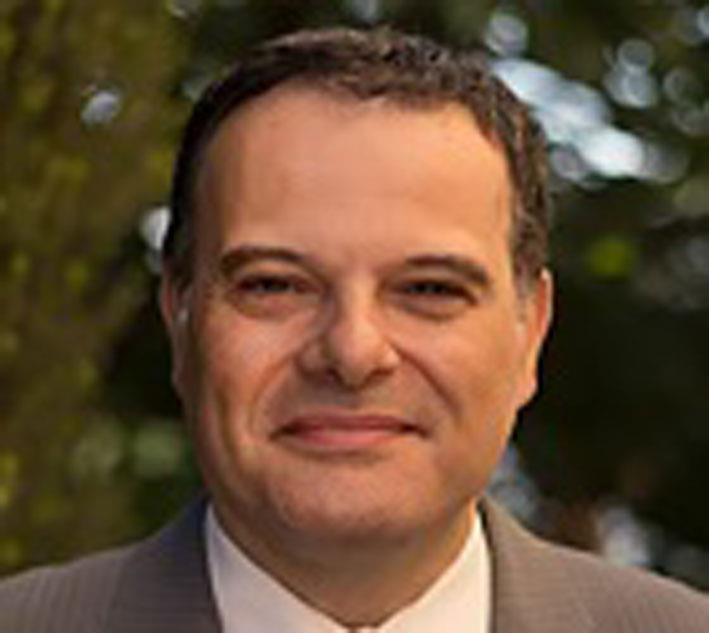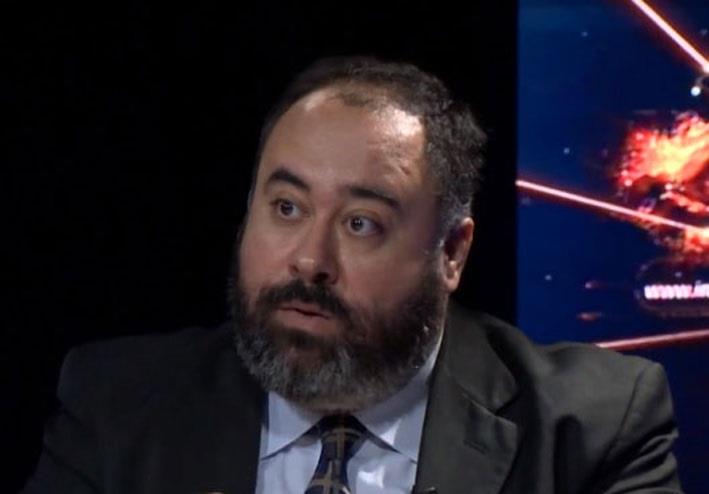An extreme form of neo-liberal laissez-faire obsessed with growth and credit ratings
Prof. Mark-Anthony Falzon
Anthropologist, Head of Department of Sociology
Joseph Muscat is very good at what he does. What he does is, basically, an extreme form of neo-liberal laissez-faire that is obsessed with growth and credit ratings. He also wins elections, usually by landslides. The two are linked – the vote may be huge and popular, but it is also embedded in structures of power and influence. It would, for example, be foolish to underestimate the import of massive campaign funding by super-rich construction magnates. Beyond that, however, and where it really matters, Joseph Muscat has generally failed to deliver.

It helps to ask a few basic questions. First, has there been an improvement in standards of public life? I don’t think so. I wouldn’t say there is more corruption than there was five years ago, but there certainly isn’t less. Likewise, meritocracy and transparency are as elusive as ever: what has happened is simply a replacement of one type of crony with another (and I don’t necessarily mean that Labourite has replaced Nationalist – Muscat is too cunning for that).
Second, has there been a moral, political, and tangible investment in models of sustainable development? The answer to that is a very big No – as far as sustainable development is concerned, the country is coming apart at the seams, to the extent that the standard coping mechanism is to simply not care what happens beyond one’s bubble.
Third, to what extent has all the supposed wealth translated into more money for the population generally, as opposed to a few thousand who were already pretty rich to start with? The answer to this is more complex, partly because the economic resilience of the population is based on the principle of a finger in every pie. Speaking for myself, my salary is not higher today than it was five years ago. I’m relatively privileged and I’m not complaining, but I hate to think what things must be like for people on the minimum wage who do not wish to work five jobs.
Fourth, has there been an improvement in the standard of living broadly defined? Again, not really. Many things in Malta are as shoddy and mediocre as they were five years ago. Try using a wheelchair for a day, or cycling to work, or walking in the countryside. So no, Joseph Muscat is not the Übermensch he is believed by some to be.
***

Joseph Muscat’s legacy: civil rights and an economic boom
Dr Mario Thomas Vassallo
Resident academic
Department of Public Policy
University of Malta
From a public leadership perspective, Muscat’s premiership is an exceptional phenomenon that merits to be objectively investigated in the future with the benefit of hindsight. Although inheriting a political party in shambles, Muscat managed to revolutionize its internal structures, ideology and modus operandi in a very short time. This was no easy feat, particularly when one considers how traumatic this process is within the PN which is in the same state of play the PL was when Muscat announced his candidacy for party leader back in 2008. His charismatic and technocratic knowhow, reinforced by an efficient institutional machinery, brought together the different factions of his party, where the staunch Labourites started to call their party ‘home’ again and, simultaneously, the newcomers, business people and former PN supporters and activists were given space to manoeuvre and incubate new policy avenues. Gluing these conflictual interests into a single entity, which Muscat adamantly calls ‘movement’, is his biggest contribution to the Party. Although this enduring glue secured him legitimacy and, eventually, two astronomical electoral successes, it can also be looked at as being the tyranny of a single narrative that banishes open and inquisitive minds.
His major legacy as prime minister is going to be twofold: civil rights and economic boom. From a Machiavellian standpoint, he was shrewd to identify the Achilles heel of the PN, that is, its core ideological dependence on the social teachings of the Catholic Church regarding ethical and moral issues. His persistent, progressive drive towards the achievement of more civil rights continued to hammer down the PN’s parliamentary group under Gonzi, Busuttil and Delia’s helms. On the other, the economic success was the result of two essential factors: (i) an economic infrastructure and diversification that have endured the financial crisis without huge losses and (ii) a liberalised economic model that opened the gates for insatiable foreign direct investment and, consequently, exorbitant influx of migrant workers. The fact that the Maltese are nowadays discussing the diseconomies of scale on both a macro and micro economic/social levels is in itself an acknowledgement of Malta’s resilience and ‘miracle’ economy.
The dark shadows involving flagrant bad practices concerning good governance and environmental matters will of course continue to loom Muscat’s power trajectory. While his premiership, originally calling for meritocracy and accountability, failed miserably to pass the smell test of corruption, dumping the crucial factors of environmental and economic sustainability has the potential to dismantle Muscat’s legacy in the long run.
***

The Liberal Variant of Amoral Familism
Mark A. Sammut
I do not believe that history is made by “great men”. “Great men” follow their passions, their (killer) instinct. History uses “great men”, only to discard them once their usefulness is over. Instead, I believe history is caused by a concatenation of events bigger than any one person.
I also do not believe that history is the march toward freedom. It’s not a march actually; it’s a cycle which repeats itself but never in the same way. There are historical moments when times are ripe for personal freedom, others when they are ripe for political freedom. Others still, for neither.
Since the fall of the Berlin Wall in 1989, we have been experiencing a shift dictated by now-truly globalised market forces. These require an uprooted labour force which, in order to respond quickly and efficiently to the needs of production, has to accept precarity and mobility, forgoing family ties. Full sexual freedom, and the ideology that this “freedom” is good, are therefore essential.
At the same time, the labour force has to shed its national identity in favour of a cosmopolitan hotchpotch which prefers returns on capital to the benefits of living together in a more or less culturally homogenous community.
I see all of this as “neoliberalism” – social liberalism tangoing with market laissez-faire.
Joseph Muscat did not invent neoliberalism, and I do not think he is a true believer in it either. The way he changed his stance on gay “marriage” (from against to pro) says a lot. His stances seem calculated: he’s more of a marketeer than a visionary. He understands the spirit of the times and, chameleon-like, adapts to it to become its messiah. Which means that had the times been conservative, Dr Muscat would have been conservative.
That the times have a certain spirit does not mean that that spirit is right. The late 19th century was awash with imperialist greed and the early 20th with eugenics dogma. Both were morally wrong. So being a tool of history makes you neither a good nor a bad person, because history is amoral. It’s the principles you decide to embrace and push forward that shine through your public persona.
There’s no need to address the thorniest issue, since I have already written a whole book on those two lads who were playing hide-and-seek in secretive, far-flung jurisdictions for the sake of their families.
***

Dr Joseph Muscat’s performance as PL leader and prime minister
Desmond Zammit Marmara`
As the leader of Partit Laburista, Dr Joseph Muscat has been an absolute success. He has won all the elections he has contested as party leader, including two general election landslides in 2013 and 2017. His success can be attributed to his having succeeded in unifying the party; his creative use of the latest technologies to get the party’s message through to an ever-greater number of people; changing the Labour Party into the Labour Movement and thus welcoming with open arms thousands of ex-Nationalists; giving prominence to youth in all structures of the party bringing in innovative and fresh ideas. As Prime Minister, Dr Muscat can boast of economic success; various social measures benefiting all the social strata; emphasis on equality; and a war on social discrimination.
Dr Muscat also has his critics. Some maintain that “Partit Laburista” today is nothing more than a name as the party has a Leftist social policy, a Rightist economic one, and a very pragmatic approach to policy which excludes all ideological considerations. They also stress that the PL is too close to big business and that this should never be the case in a ‘Labour Party’. The Panama Papers and the controversial role of Minister Konrad Mizzi and Muscat’s Chief of Staff Keith Schembri have resulted in accusations of a lack of good governance and even alleged corruption. Prime Minister Muscat was, of course, absolutely correct when he said he would first wait for the result of the magisterial inquiries on these matters and would then act accordingly.
It is also pertinent to note that much of the criticism levelled at Prime Minister Joseph Muscat regarding Daphne Caruana Galizia’s assassination has been unfair, having only the sole aim of undermining the Labour government. It is a well-known fact that the journalist had refused protection, so any criticism levelled at the Labour government because the assassination occurred on its watch is out of order. Likewise, attempts to link the Labour government to the motive of the assassination have only been based on groundless and malicious speculation.
Perhaps, Joseph Muscat’s greatest asset as a leader is that he always attempts to solve problems by negotiating a compromise acceptable to both sides, as well as his total adaptability to all people and all situations.
***

Joseph Muscat is a political phenomenon
Dr George Vital Zammit
Faithful to his decade-old pledge to institute an ‘earthquake’ in the structures of the Labour Party, Dr Joseph Muscat unpacked a party stricken by a series of electoral defeats, and called for a movement that to date, has made Labour the natural home for the (large) majority of voters.
There are many ingredients to this recipe, and Muscat’s vision played a fundamental role in crafting a catch-all party that portrays a sense of inclusion. His greatest ability has been to forge ahead with policies that were anathema to traditional Labour (pro European, pro business, pro privatization), without alienating his support base. This did not come without a very careful political stratagem tailored to omit controversial policies such as the privatization of the Power Station, Medical hospitals, and the Individual Investor Programme - that eventually commodified national citizenship.
Muscat cruised through ups and lows, hammered by an attentive independent media, but glorified by an expanding followership that tuned in to unprecedented prosperity and employment. His stellar rise, Machiavellian handling of power, and unscrupulous use of incumbency, made him an unstoppable machine. Whereas conventional wisdom holds that even the prospect of leaving power (he already announced retirement) might dwindle a leader’s political influence, this is clearly not the case with Muscat.
The Prime Minister’s record will be hard to emulate. He transformed Labour into a winning machine, scoring two consecutive landslides, decimating the PN in the process. Just like Eddie outlived three leaders from the opposite camp, Muscat is already facing the third, within a shorter span of time. But the price to pay for this meteoric success, (at least for posterity’s sake) has been very high too.
Muscat has significantly contributed to the erosion of trust in state institutions. Allowing (by design and not accidentally) the Police and Army to be hijacked by political intrusion is grave. The national security of the country cannot be allowed to be compromised by incompetence due to patronage and tokenism.
The late Mario Cuomo once remarked that campaigning comes as poetry, whilst governing comes in prose. Muscat’s oratory prior to 2013 called for principles of meritocracy, accountability and transparency, three tenets of good governance, thrown out of the window by retaining his two right hand men in public office. His inability to remove them cast a shadow on his tenure, one he could have avoided, sparing the country from unnecessary embarrassment and humiliation. The disregard for public land, in a country facing a population boom, will also rank Muscat’s administration very low in the protection of the environment.
On a final note, Dr Muscat is eyeing for an exit with a number of issues still in the offing. How these issues will be determined might one day seal his legacy. If he is cleared, the nation will owe him an apology. If not, he will have disrespected the honour and prestige of the most important public office in the country.
Meanwhile, studying Joseph Muscat in our politics classes, will remain a must.